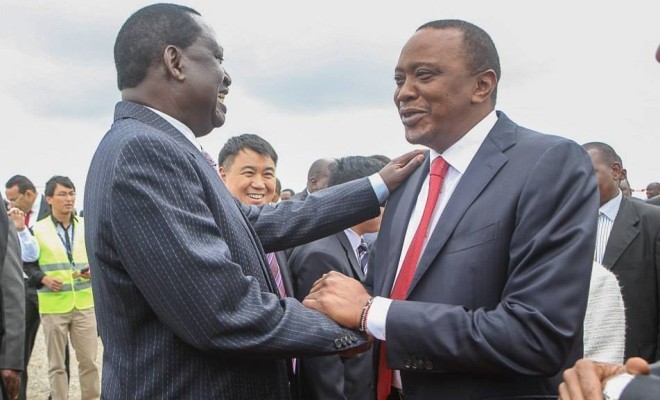The rivalry and the battle between the main political divides; Jubilee coalition led by Kenyan President Uhuru Kenyatta and Raila Odinga’s National Super Alliance has dominated the headlines in Kenyan media. Since the last general election held on August 8th, 2017 which Kenyatta’s’ victory was nullified by the Supreme Court on September 1st, 2017, heated political wrangles over the conduct of the repeat presidential election within 60 days as stipulated in the constitution have emerged. The Jubilee coalition has stated its readiness to go back into the re-run under the custody of the current electoral body (IEBC). On the other side, NASA as vowed to boycott the election if some of the IEBC officials are not removed from the office. It argues that the IEBC is bound to the Jubilee administration and therefore incapable of conducting free and fair election. In addition NASA has staged demonstrations against the ‘corrupt’ officers in IEBC. Jubilee has termed NASA’s demands as an attempt to force ‘half bread government’.
Comment:
Democratic politicians are known to be hijackers of public inspirations in order to sway the public to believe that the political wrangling is a fight for their livelihood. As politicians lock horns, the common man continues to suffer from the high cost of living, poor healthcare services as nurses are on strike over pay rise. Yet the politicians have engaged into political grips which at the end will be in their favor. Ironically the August poll was one of the most expensive in Africa costing Kenya’s tax payer Sh.50 billion ($499 million). The Kenyan Treasury was forced to cut spending in critical sectors and divert the public resources to finance the elections. As to why we witness the political mistrust among the politicians and down to the public, this is due to capitalist view on life; by making ‘interest’ the sole criteria for human deeds. A close scrutiny on the current political crisis reveals how democracy has generated mistrust among its politicians. In the pursuit of their personal gains, politicians create crises that aim to a compromise solution.
Looking at the supporters of each of the coalitions i.e. Jubilee and NASA it can conclusively be said that Kenya is suffering from tribalism. The current crisis has further exposed the Kenya’s political formula, which is a tribal-structured politics whose politicians use it to gain prominence. Tribalism in Kenya dates back to British colonial era. The British colonialists used the divide and rule method of governance. The colonials further played one ethnic group against the other.
With regard to conducting a new election, what is important here is not to speculate whether Raila Odinga is ready to go back to the polls or Uhuru Kenyatta stands another chance to be re-elected. The concept of having perennial elections should rather be the issue to highlight. Perennial elections in democracy are one of the desperate attempts to conceal its failures. Democracy has failed politically in the world and it has been designed to cater for a handful elites. Under the guise of Democracy, major western powers have intervened in domestic issues of the ‘young democratic nations’ destabilizing their economies and decomposing their peoples’ morals.
It is sad to see the Muslims and those open-minded societies to be hoodwinked by the fallacy of democracy as well as its greedy politicians who always yearn for individualistic benefit at the expense of the common-man. The failure of democracy should help people to champion for an alternative, just and comprehensive Islamic ideology; that encompasses both political and socio- economic divined solution to all humankind.
Shabani Mwalimu
Media Representative of Hizb ut Tahrir in Kenya

